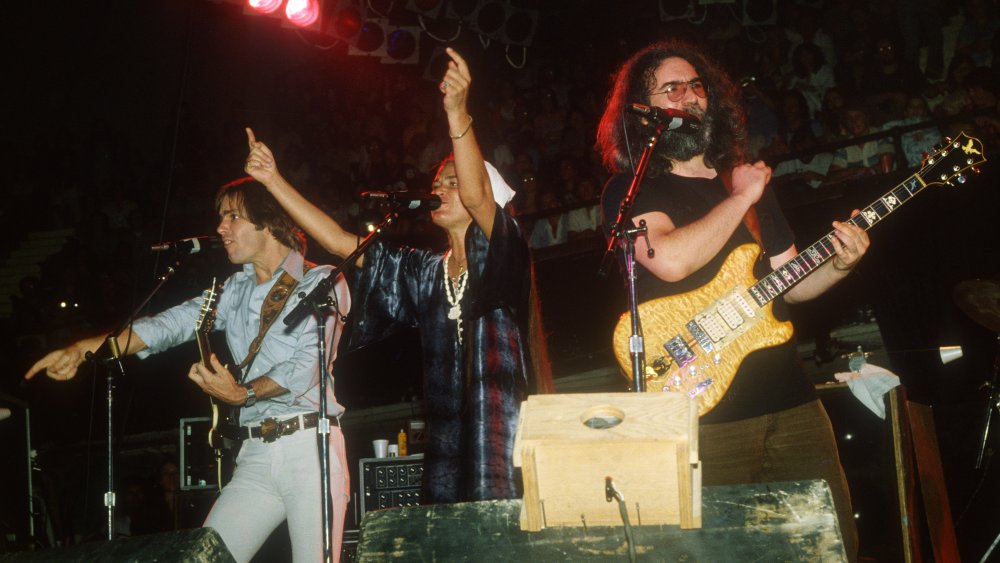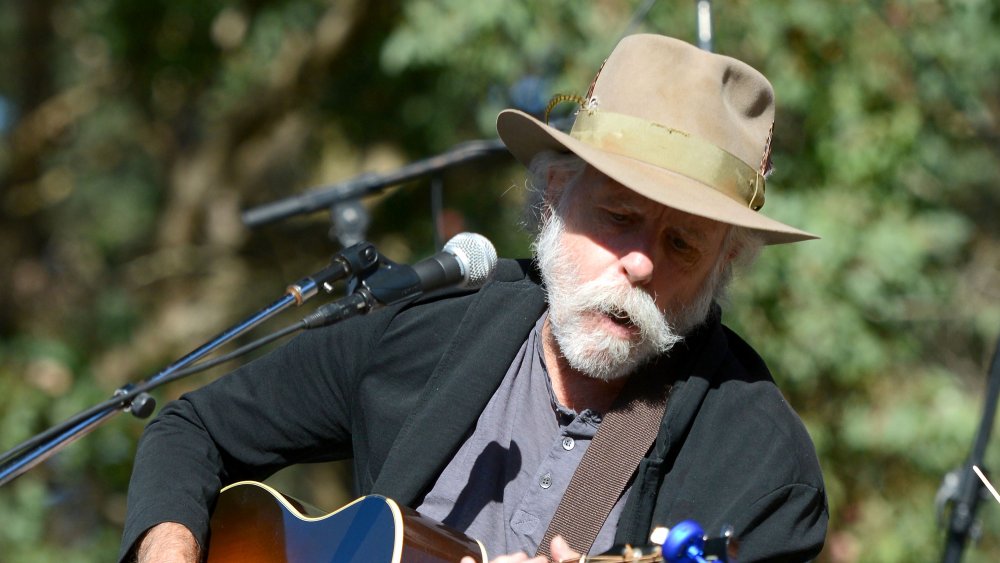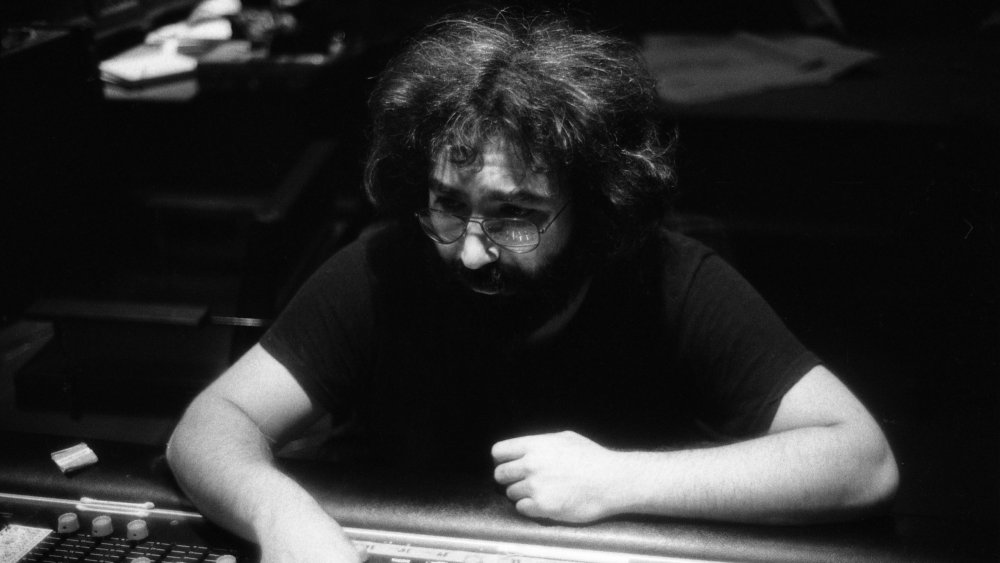Why The Grateful Dead Didn't Achieve Mainstream Success
The Grateful Dead is a band that's extremely difficult to pin down and define, doubtless because their musical ethos has always run so counter to punchy, mainstream, hook-saturated music. It's quite possible to play the Dead in the background and forget they're on, kind of like jazz. This comparison reveals a lot, because the Dead are, in many ways, an improvisational jam band. They became famous for their live shows, no two which are the same. The fans, known as Deadheads, are more than used to vibing and tracing the melodic path of Jerry Garcia's fretting for eight, nine, ten minutes — take your pick — before the band lands back into a chorus. But, as Brooklyn Vegan wisely points out, this can only happen because the Grateful Dead were such a solid studio band with well-crafted songs that allow for play and variation when performed.
Based on this information alone, is it any shock that the Grateful Dead never achieved mainstream success? Yet, the definition of "success" is tricky in this case. The Dead have sold 35 million records total, as described on Reddit, and broke a Guinness World Record by releasing an absolutely jaw-dropping 167 full-length live albums. They became quintessential anti-establishment hippie icons, developed a devoted following of Deadheads that stuck with them over their entire 50-year lifespan, and Jerry Garcia even had a friggin' ice cream named after him, Ben & Jerry's Cherry Garcia.
Does this still sound like a lack of success?
Released 167 live albums, scored one Top 40 hit
A lack of mainstream success, perhaps. Out of their entire catalog of songs, the Grateful Dead have only had one Top 40 track. One. It's the kind of track that might make someone squint, tilt their head and say, "Hey yeah, I do think I've heard this before." The track in question? "Touch of Grey" (posted on YouTube).
Per Live for Live Music, "Touch of Grey" peaked at #6 on the Billboard charts. The song is easily the most accessible, crossover-friendly, and straight-up poppy song in the Grateful Dead's catalog, clocking in at under 6 minutes (trimmed to 5 minutes for the radio). It still has Jerry Garcia's usual scales running atop the main structural loops, but it's, well ... cute. Extremely. It's no wonder the song wriggled its way into the top 40. That moment, in 1987, marks the closest the Dead have come to widespread commercial appeal. Of course, the Grateful Dead can't be blamed for so stridently sticking to their musical vision. There's no blame to be had in their discography's lack of a summer party blowup track.
In recent years, though, some have questioned the Grateful Dead's legacy. ArtsFuse said that the inclusion of acoustic punchboy John Mayer into their live lineup was one of the only things preventing them from becoming a pure nostalgia act, with no new music written since the '80s.
A legacy of experimentation and jam sessions
It might be extra easy to hate on the Grateful Dead, given the majority of their current audience. As described on Medium, the same people who listen to the Grateful Dead now are those who've always been their audience. Except now, those Deadhead hippies have grown up to have $100k+ annual salaries. This might not be completely out of place if we imagine the Grateful Dead's backyard campfire feeling translated into affluent backyard barbecues fired up by folks in polo shirts who want to continue believing in the authenticity of their youth. True or not, Garcia, who passed away in 1995, would doubtlessly find this quite amusing. Yet, it doesn't detract from the Grateful Dead's very particular success: their live shows.
Despite never attaining real mainstream popularity, the Dead were, in addition to all the aforementioned stats about records made and records sold, the highest grossing touring act of the 1980s and early '90s. This is a complete turnaround for a group who got in debt to their label for $100,000 after releasing the album Aoxomoxoa in 1969 because they simply couldn't resist taking up tons of studio time experimenting, per AllMusic. In turn, this penchant and apparent failure proved to be their defining characteristic.
Best not judge the Grateful Dead based on mainstream appeal, then, or numbers, or their fanbase. As always, just look to the music. Turn on Spotify, or flip a record if you've got vinyl, and vibe away.


